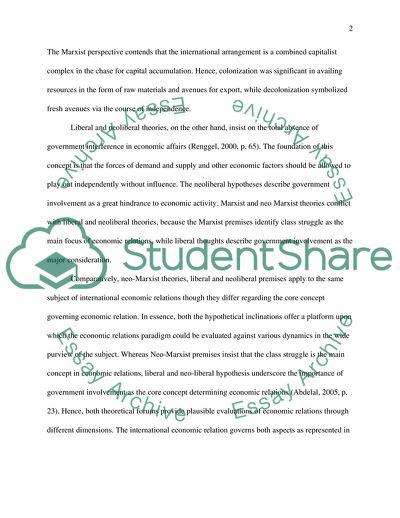Cite this document
(Politics of International Economic Relations Essay, n.d.)
Politics of International Economic Relations Essay. https://studentshare.org/politics/1775240-how-do-neo-marxist-theories-compare-with-liberal-and-neoliberal-theories-of-international-economic-relations-which-is-most-pertinent-to-developing-states-which-is-most-pertinent-to-developed-states
Politics of International Economic Relations Essay. https://studentshare.org/politics/1775240-how-do-neo-marxist-theories-compare-with-liberal-and-neoliberal-theories-of-international-economic-relations-which-is-most-pertinent-to-developing-states-which-is-most-pertinent-to-developed-states
(Politics of International Economic Relations Essay)
Politics of International Economic Relations Essay. https://studentshare.org/politics/1775240-how-do-neo-marxist-theories-compare-with-liberal-and-neoliberal-theories-of-international-economic-relations-which-is-most-pertinent-to-developing-states-which-is-most-pertinent-to-developed-states.
Politics of International Economic Relations Essay. https://studentshare.org/politics/1775240-how-do-neo-marxist-theories-compare-with-liberal-and-neoliberal-theories-of-international-economic-relations-which-is-most-pertinent-to-developing-states-which-is-most-pertinent-to-developed-states.
“Politics of International Economic Relations Essay”. https://studentshare.org/politics/1775240-how-do-neo-marxist-theories-compare-with-liberal-and-neoliberal-theories-of-international-economic-relations-which-is-most-pertinent-to-developing-states-which-is-most-pertinent-to-developed-states.


